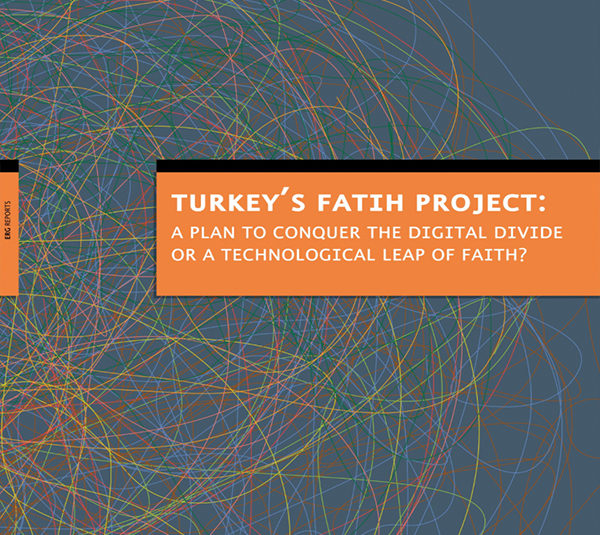Turkey’s FATIH Project: A Plan to Conquer the Digital Divide, or a Technological Leap of Faith?


Turkey is embarking on one of the world’s largest educational technology projects: putting tablet computers in the hands of every student from grade 5 to 12, and interactive whiteboards in every classroom. With FATIH (The Movement to Enhance Opportunities and Improve Technology), Turkey’s Ministry of National Education is in a unique position on the world stage: the project is nascent and grandiose enough to at the same time affect real and lasting change; and become a model for a host of other nations looking for effective ways to prepare their children for leading roles in the global knowledge economy. Though massive in its planned scope, the goals and approach of FATIH are little understood.
In 2013, ERG teamed up with Research Triangle Institute(RTI International) to study Turkey’s FATIH project. For ERG, this has been considered as a major part of its ongoing efforts of monitoring education policy issues and a thorough evaluation of FATIH necessitated cooperation with a research center endowed with comprehensive international experience regarding ICT in education. RTI, an international non-profit organization implementing education reform projects worldwide, welcomed the opportunity to learn more about the implementation of FATIH in collaboration with ERG in order to contribute to the recommendations based on experiences of other large-scale ICT in education programs worldwide.
ERG and RTI have collaborated on preparing a policy brief titled “Turkey’s FATIH Project: A Plan to Conquer the Digital Divide, or a Technological Leap of Faith?”, which aims to analyze FATIH through the lens of ongoing and previous international large-scale ICT in education experiences, and to use those experiences to suggest ways in which this important investment in educational technology can lead to the best possible learning outcomes for all students in Turkey.
With this policy brief, ERG and RTI hope to help inform the general public about FATIH and contribute to the facilitation of constructive dialogue.
Download PDF